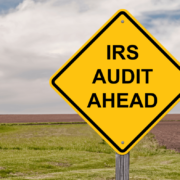Tax Refund Offset Taking Your Tax Refund? Find Out Why
- Learn about the Bureau of the Fiscal Service and their tasks regarding taxes.
- Discover which debts the government considers allowable refund offsets.
- Find out how to dispute an offset.
- Learn more about the injured spouse claim.
- Find out if EIPS are subject to tax refund offsets.
We all look forward to receiving our tax refunds. But what if you were expecting a refund and it never arrived? It may be because you have outstanding federal or state debts—and not just tax-related debts. Did you know that the Treasury Department’s Bureau of the Fiscal Service (BFS) issues federal tax refunds? Congress authorizes BFS to reduce your refund through its Treasury Offset Program (TOP) to pay:
- Past-due child and parent support;
- Federal agency non-tax debts;
- State income tax obligations; or
- Certain unemployment compensation debts owed to a state (generally, these include debts for (1) compensation paid due to fraud or (2) contributions owed to a state fund that weren't paid).
Do you owe a debt that’s past due? Then, all or part of your federal income tax refund may go to pay your outstanding federal or state debt if it has been submitted for tax refund offset by an agency of the federal or state government. Fiducial has more information on this program below!
What do I do if a tax refund offset occurs?
BFS will send you a notice if an offset occurs reflecting the original refund amount, your offset amount, the agency receiving the payment, and the address and telephone number of the agency. BFS will notify the IRS of the amount taken from your refund once your refund date has passed.
You should contact the agency shown on the notice if you believe you don't owe the debt. Also contact them if you're disputing the amount taken from your refund. Contact the IRS only if your original refund amount shown on the BFS offset notice differs from the refund amount shown on your tax return. If you don't receive a notice, contact the BFS's TOP call center at 800-304-3107 (or TTY/TDD 866-297-0517), Monday through Friday 7:30 a.m. to 5 p.m. CST.
If you choose to wait and see what happens when you file your return, BFS will send you a notice if an offset occurs. Want to dispute the amount taken from your refund? Then, you will have to contact the agency that submitted the offset claim. The agency will appear on the notice you will receive from the BFS.

If the BFS reduced your payment because a federal or state agency thinks you owe money, you should receive a letter from that agency. Call or write to them at the contact information on the letter. If you can't find that information, you can get it by calling 800-304-3107. Only the agency that told BFS to collect the debt can work with you to return any part of the payment that should not have been taken from your refund.
Injured spouse allocation
If you filed a joint tax return and only one spouse is responsible for the debt, the other spouse may be entitled to part or all of the refund. To request a refund for the spouse not responsible for the offset, you can file for an injured spouse allocation. The IRS will compute the injured spouse's share of the joint refund.
Did you live in a community property state during the tax year? The IRS will divide the joint refund based upon state community property law. Not all debts are subject to a tax refund offset.
If your debt was submitted for offset, BFS will reduce your refund as needed to pay off the debt. They will also send it to the agency you owe. Any portion of your remaining refund after offset is issued in a check or is direct deposited as originally requested on the tax return.
The Treasury Offset website includes a Q&A section.
Economic Impact Payments (EIPs)
So, how does this affect the COVID-19 pandemic Economic Impact Payments (EIPs) issued in 2020 and early 2021? The second EIPs authorized in late December of 2020, are not subject to offset for any reason through the TOP. However, the first EIPs created by the CARES Act could have been entirely offset, up to the amount of an individual’s child support debt.
The EIPs are advance payments of the Recovery Rebate Credit that is part of your 2020 tax return. To the extent that you have an overpayment of your 2020 income tax liability, the Recovery Rebate Credit can be reduced to pay debts you owe to federal or state agencies.
Want to be proactive with an outstanding debt in the future? Contact the agency with which you have a debt to determine if your debt was submitted for a tax refund offset.
Need assistance filing for an injured spouse claim or have other questions about refund offsets? Call Fiducial at 1-866-FIDUCIAL or make an appointment at one of our office locations to discuss your situation.
Ready to book an appointment now? Click here. Know someone who might need our services? We love referrals!
For more small business COVID-19 resources, visit Fiducial’s Coronavirus Update Center to find information on SBA loans, tax updates, the Paycheck Protection Program, paid sick and family leave, and more.









